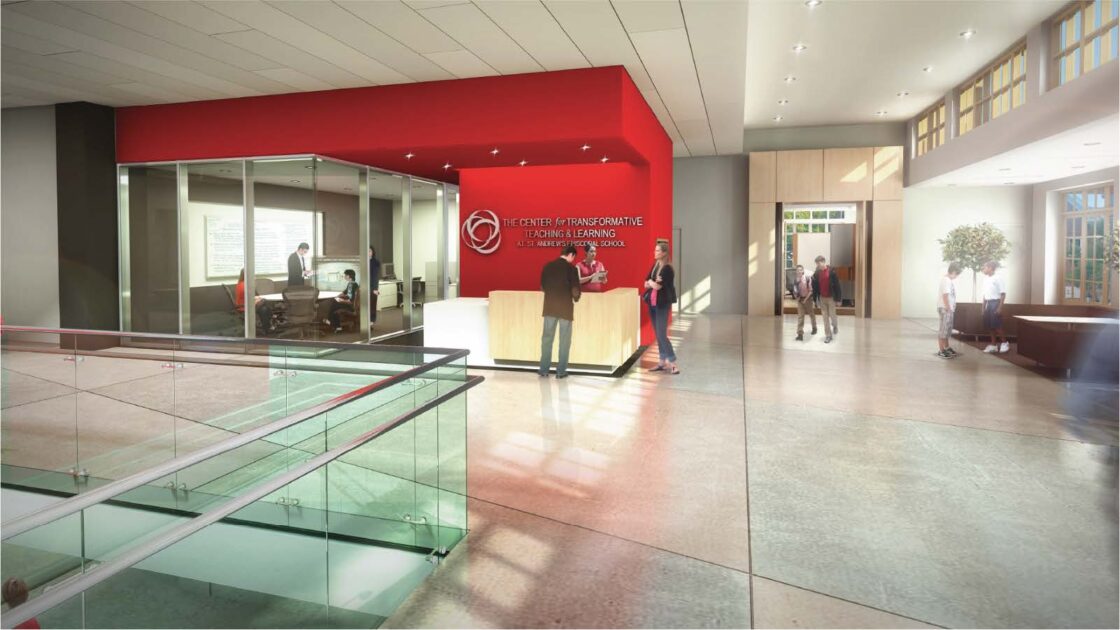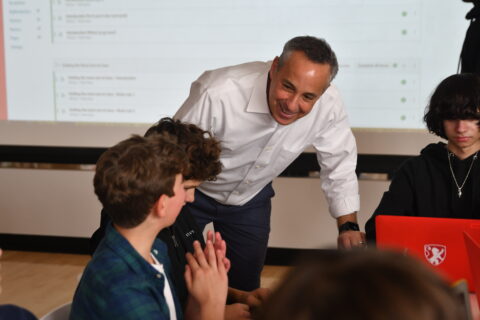Research-Informed Tools for Parents
Since 2011, the CTTL has been using insights from research in the field of Mind, Brain, and Education (MBE) to improve all aspects of teaching and learning at St. Andrew’s. On a daily basis, our teachers reflect on questions such as “what does great teaching look like?”, “how do I get students to engage, think hard, and persist?”, “how do I give my students impactful feedback?”.
Teachers at St. Andrew’s take promising principles from research, lay it alongside their personal and collective professional wisdom, add in their own secret sauce as a teacher, and devise lessons, assessments, creative projects, homework, learning spaces, and routines that help each student reach their highest potential.
Families are critical members of a student’s learning community. No matter where your child learns – at a classroom desk or at the dining room table – you play a critical role in their education as a co-teacher. So, it is important that parents, mentors, and other supportive adults have access to research-informed resources to help students reach their full potential. The following resources were designed by The CTTL’s team of teacher-researchers and based on the science of learning. If you are interested in more research-informed learning resources, email info@thecttl.org.
For more on the research supporting The CTTL’s work visit our research base.
MBE Bites
FALSE
READ!
Families’ Guide to Parent-Teacher Conferences
Knowing each child as an individual is core to St. Andrew’s mission and critical in helping each student meet their potential as a learner. That is why we hold Parent-Teacher Conferences early in each school year. As parents, you bring to Parent-Teacher Conferences unique insight into your child as a learner. You have been observing how your student engages with their teachers, classmates, and friends and rises to the challenges and opportunities. Likewise, each teacher has spent the early weeks of school getting to know your child and striving to understand their current strengths and areas of challenge through a range of learning experiences.
Sharing initial observations and getting your insights at these Parent Teacher Conferences is so important to the school-home partnership. The parent tools below have been developed with the intention to facilitate clear, insightful and constructive partnership between parent and teacher for the benefit of the whole child experience. St. Andrew’s Episcopal School and its Center for Transformative Teaching & Learning created this resource to help you get the most from your virtual conferences, and to help you recall what you heard and said hours and days later.
Downloads
Download the LS Parent-Teacher Conference Tool here.
Download the MS/US Parent-Teacher Conference Tool here.
Better Learning and Study Strategies for Final Exams and Projects
Throughout the year, the CTTL shares the most promising research and strategies in how the brain learns to enhance how we teach and how students learn. Final exams and projects are important ways to measure the growth and development of students before heading off for the summer. Here are some of the most effective strategies that the CTTL is sharing with teachers, advisors, students, and now parents to support each student’s final exams and project preparation. Let us know if you have any questions by emailing cttl@saes.org.
Download the Study Strategies for Final Exams and Projects PDF here

Parent Tips Blog

Research-Informed Tools for Parents
Since 2011, the CTTL has been using insights from research in the field of Mind, Brain, and Education (MBE) to improve all aspects of teaching and learning at St. Andrew’s.

The Value of Mind, Brain, and Education Science from a School Leader’s Perspective
In November 2021, we interviewed Tom Woelper, the founding Head of School at New England Innovation Academy (NEIA) in Massachusetts, to get his perspective on the value of Mind, Brain,

Parent Tips: Talking About Grades with Students
Help your child see that they are on a team with you and their teachers, and together, you are on a mission to figure out what their learning success strategies are.

Parent Tips: Supporting Learning Doesn’t Mean Giving Answers
When parents provide answers or too many hints via leading questions, it does not help your child achieve the primary goal: learning how to think and learn.

Look Behind You! Parent tips for helping your child use what they already have to build quality learning
Learning involves making all that content and all those skills covered during the school year stick in the brain. Now is a great time to help your child make it stick, and they already have what they need to begin doing that in their backpack.
